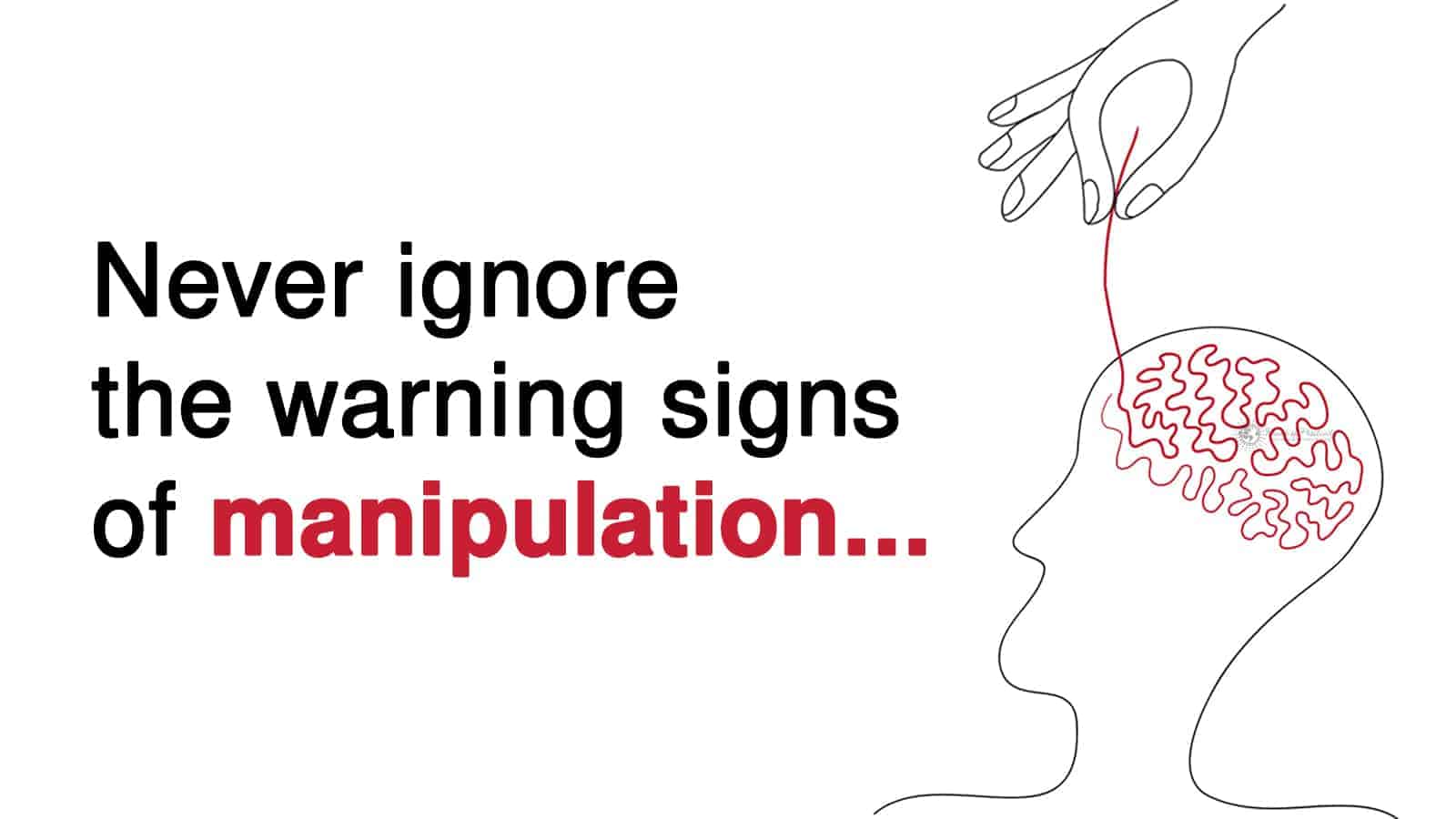Verbal abuse is often overlooked. It may be considered “less serious” than physical abuse, but the truth is that it can be just as painful and damaging to one’s physical and mental health. It can ruin lives, and the worst part is many people don’t realize that until it’s too late. The trouble is that verbal abuse can be very subtle. It can build slowly and gradually, and if you miss the small red flags, you might find yourself in a highly toxic situation. Here are some signs of a verbally abusive relationship most people ignore.
10 Signs Of A Verbally Abusive Relationship Most People Ignore
1. They Are Overly Possessive And Jealous
Yes, jealousy is a natural feeling in some situations. But someone who is overly controlling and gets irrationally angry when they see you speaking to others is a step away from being verbally abusive – if they aren’t already.
Many overly jealous individuals will constantly think you are cheating on them in romantic relationships. They deal with heavy levels of insecurity and, instead of working through that, take it out on you. They might see flirting when you’re just being friendly to someone, or suspect that you’re cheating for no reason. Some examples of things they will say are:
- Hope you had fun flirting with that guy again.
- I’m pretty sure you’re cheating on me.
- I saw how you looked at that girl! I wasn’t born yesterday!
Jealousy is an irrational emotion, and it can lead to someone controlling you and cutting you off from your external support system (family, friends, and colleagues). They may always demand to know where you are and who you’re with, like an overprotective parent. So be careful with someone who turns into the green-eyed monster too often.
2. They Blame You For Everything
Taking responsibility for your actions is crucial in a healthy, positive relationship. It makes sense that you will make mistakes and be at fault every now and then. So if you always seem to be the one who has to take the blame, you could be in a verbally abusive relationship.
Blame is an exceedingly common component to emotional and verbal abuse, says licensed professional counselor Rachel Ann Dine. It signifies an emotionally immature, insecure person who never wants to be in the wrong. And they don’t just blame you over mishaps and misunderstandings – they blame you for everything. For example:
- I wouldn’t be shouting if you weren’t so stubborn and unreasonable!
- Look what you made me do!
- You’re the reason we’re always late.
- I didn’t misunderstand you; you just have to be clearer.
- You made me upset; that’s why I’m doing this!
- You wouldn’t think it was bad if you just had more positive thinking.
You may find yourself always saying you’re sorry, wondering if you’re remembering things incorrectly (see our point on gaslighting further down), and questioning whether you even deserve to be upset.
3. They Embarrass You In Public
We’re not referring to light, gentle teasing, and banter that’s all in good fun and makes you laugh. We’re talking about direct attempts to shame and humiliate you around others – a horribly disrespectful act.
Someone who talks smack about you to friends, family members, and anyone who will listen is being verbally abusive. If you’re there, you’ll be humiliated. If you’re not there, people get a bad impression of you and you can’t defend yourself.
This even goes for reasonable comments about something you’ve done. Someone who would rather bring it up in front of an audience and put you on the spot than discuss the problem behind closed doors is relying on your feelings of embarrassment to get their way. No one should attempt to air out your dirty laundry like that.
4. They Say Demeaning, Derogatory Things
Someone who is verbally abusive may say cutting, scathing remarks that demean you horribly or put down an entire group of people based on your actions. It’s unhealthy and shows clear disrespect. Here are some examples of what they might say:
- Wow, you sure don’t care about looking good, huh?
- Of course, you’re crying. You women are so sensitive.
- Yeah, I knew you’d do that; you Indians always do that.
- Why can’t you be strong like other men?
- I see you decided against the salad again. Geez, no wonder you hate your size.
Some verbal abusers will frame this as just sarcasm and say they have a dry or dark sense of humor. But the bottom line is that if it makes you uncomfortable, someone important in your life will not continue that behavior.
5. They Belittle You And Discount Your Experiences
It doesn’t matter how knowledgeable you are about something. A verbal abuser will always find a way to put down your intelligence, belittle your knowledge or skill, and discount your experiences.
The same goes for disagreements. If you have a differing opinion, no matter how positive you are when you state it, a verbal abuser will never fire back with something fair. Instead, they will tell you that you don’t know what you’re talking about and interrupt you, speaking over you so they “win.”
You will also be struck by this if you have a concern to bring up with them. Even if you tell them what you have been through or how you feel, they will find a way to tell you that you have it all wrong. They have no interest in listening to you – only in emerging the victor of a conversation contest you never agreed to compete in.
6. You Find Yourself Thinking Twice Before You Speak
Words matter and no one can fault you for choosing to be careful with what you say so you don’t hurt someone else. But what happens when this is taken to an extreme? You might have to be extremely careful about phrasing, knowing from experience that even one wrong word could have you on the receiving end of anger and screaming.
No amount of positive thinking can calm the anxiety you might get from being around a verbal abuser. It can give you anxiety as you struggle to choose your words carefully so you don’t anger them and end up on the receiving end of their wrath. You’re walking on eggshells, always.
7. They Call You Names
Although it is one of the easiest types of verbal abuse to recognize, some still make the mistake of ignoring name calling. Sure, direct insults are easy to spot. But when disguised as a joke and followed by, “Ah, lighten up, I’m just kidding!” it gets more difficult to see it clearly.
Name-calling can go a step further, too. Someone who knows you well may try to use your insecurities against you to break you down in an argument. Then, they’ll blow it off, call it a pet name or say they’re only teasing. Examples of name-calling include:
- No wonder people say you’re stupid.
- It’s okay, sweetie, you’re too dumb to understand this.
- Why are you always such a jerk?
Sometimes, people say bad things by accident, or in the heat of the moment, says Licensed Clinical Social Worker and relationship counselor Raffi Bilek. It’s okay to slip up sometimes, as long as it is followed by an apology and a clear effort to be more careful next time. Repeated name-calling with no sign of change is never a good thing.
8. They Make You Feel Like You’re Going Crazy
Gaslighting is a terrible sign of a verbally abusive relationship most people ignore. It is a form of manipulation designed to make you doubt your memory and your side of the story. According to Licensed Clinical Social Worker Sharea Farmer, it can cause you to feel like you are losing your sense of reality. You’ll feel like you’re going insane.
Gaslighting is commonly used in arguments to twist situations in favor of the verbal abuser. They might try to change your memory of an event to suit their needs. It may also be a way for someone to trick you into thinking your reactions or emotions are unreasonable or unwarranted, claiming you are too sensitive.
A gaslighter may say you’re forgetful so it makes sense that you don’t remember how something happened. They may tell you a concern you have is just all in your head and not real. Ultimately, this only makes you feel like you’re at fault, and it can cause you to lose confidence in yourself.
9. They Criticize Everything You Do
A little constructive criticism is good for you. But if you’re constantly being criticized even over the smallest, most trivial things, you may be a victim of verbal abuse. This is a calculated attack on your self-esteem and confidence. For example, they may say:
- Why are you always so messy? This is exactly why no one likes you.
- Stop being so depressed; it makes me miserable around you.
- You keep screwing up everything!
- There you go again, being so sensitive.
- I can always rely on your forgetfulness to ruin our dates.
Someone verbally abusive might shame you for being too neat, too slow, too cheerful, or too ill. You might feel you can never do right by them.
10. They Threaten and Manipulate You
Manipulation is a painful game, and it’s a form of “minor” threat – if any threat can be considered minor. A manipulator will try to control you by threatening you with ideas, such as:
- If you really loved me, you would do this for me.
- Fine, go through with that, but then everyone will see what a selfish person you are.
- You’d be nothing without me.
- You’re lucky I even chose to date you in the first place.
But threats go beyond just this type of manipulation. Sometimes, threats escalate to dangerous levels, even if they’re said so gently that you can’t be sure if the intent is truly sinister. A verbal abuser might threaten you by saying things like:
- Honestly, no one would blame me for however I reacted if you did that.
- Better be careful with that – I might just take the kids and sell the house while you’re gone.
- Go on, do that to me then. I hope you won’t miss that guitar you love so much.
Direct threats may also be used, such as:
- Don’t make me hit you.
- I’ll ruin your life if you do that.
- If you leave me, I will kill myself.
This kind of verbal abuse hints that it will escalate into physical abuse, and it can be dangerous to stay in a situation where you are facing threats. Both manipulation and violent threats are designed to control you and force to do something indirectly. Recognize the signs and seek help if this is happening to you.
Final Thoughts On Signs Of Verbally Abusive Relationships Most People Ignore
No one deserves to be in an abusive situation. It’s not something you can learn to live with, and it shouldn’t be. Remember, no amount of positive thinking can help you when someone is verbally abusive; this type of abuse is never your fault.
If you think you are being verbally abused, or someone in your life or home exhibits a number of these 10 signs of a verbally abusive relationship most people ignore, reach out for help. You can contact the National Domestic Violence hotline of the US at 1-800-799-7233.














 Community
Community

